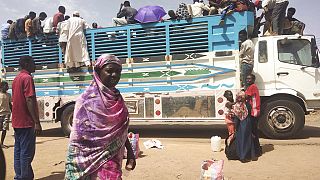The Morning Call
Zimbabwe’s newly appointed finance minister Mthuli Ncube has released a two-year transitional stabilization programme expected ultimately to help drive the economy into upper-middle class by 2030.
The programme outlines plans to among other things foster inclusive growth, ensure ease of opening businesses and help to close a fiscal deficit – in a country that has no still currency due to hyperinflation that once reached 1000%.
Amelia Martha Nakitimbo asks journalist Kuzdanai Sharara whether this programme addresses Zimbabweans most immediate needs?
Also this week in business, finance ministers from franc zone – which includes 15 African countries – discussed in a meeting on Monday the need to raise tax revenues so as to curb the worrying level of debt.
French Minister of Economy and Finance Bruno Le Maire chaired the meeting in which a report issued by the Banque de France stated that growth in the franc zone is still “insufficient” to enable “a real economic take-off”.





![Africanews celebrates fifth anniversary [Night Shift]](https://static.euronews.com/articles/stories/05/57/72/74/320x180_cmsv2_6b1e7837-a917-526b-b3b4-4582a3f8bcac-5577274.jpg)
![Africanews celebrates fifth anniversary [Morning Call]](https://static.euronews.com/articles/stories/05/57/72/70/320x180_cmsv2_a6c857d4-80a3-510a-88e6-f060ea8d9ee9-5577270.jpg)






11:19
Cyber Africa Forum highlights Benin's bold digital resilience [Business Africa]
Go to video
Zimbabwe court rejects opposition bid to block Gukurahundi massacre hearings
02:19
South African actor Embeth Davidtz makes directorial debut with Rhodesia-set drama
01:47
New International Olympic Committee president Kirsty Coventry faces high expectations
Go to video
World Bank grants South Africa $1.5B for infrastructure, green energy
02:06
Zimbabwe: Yoga in a tavern is the latest mental health outreach